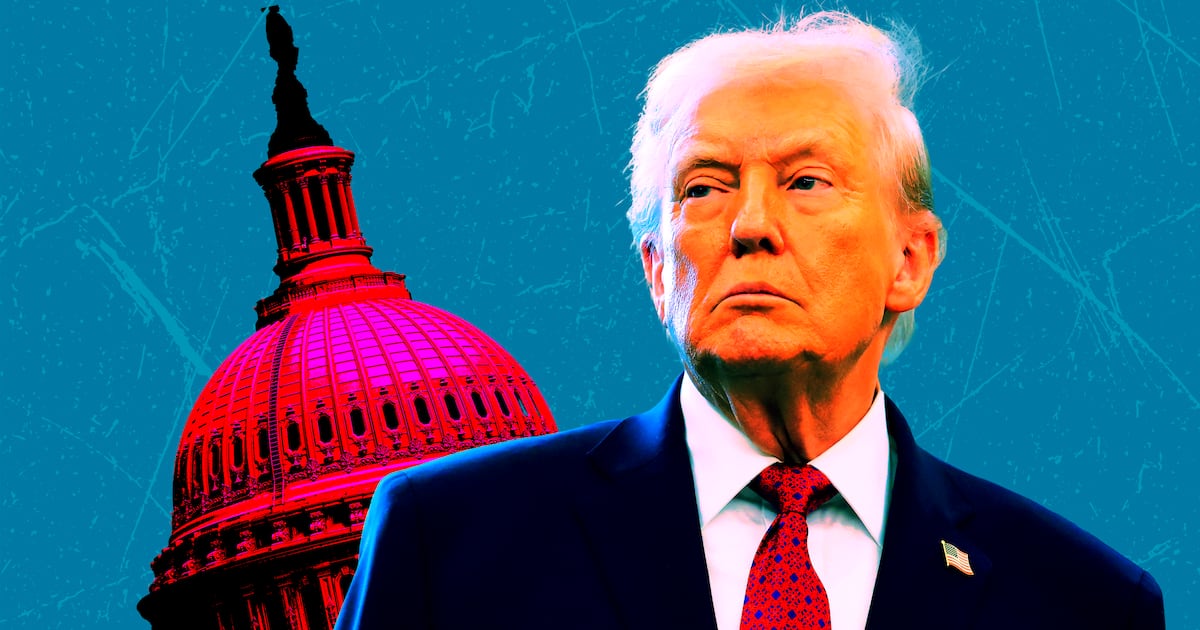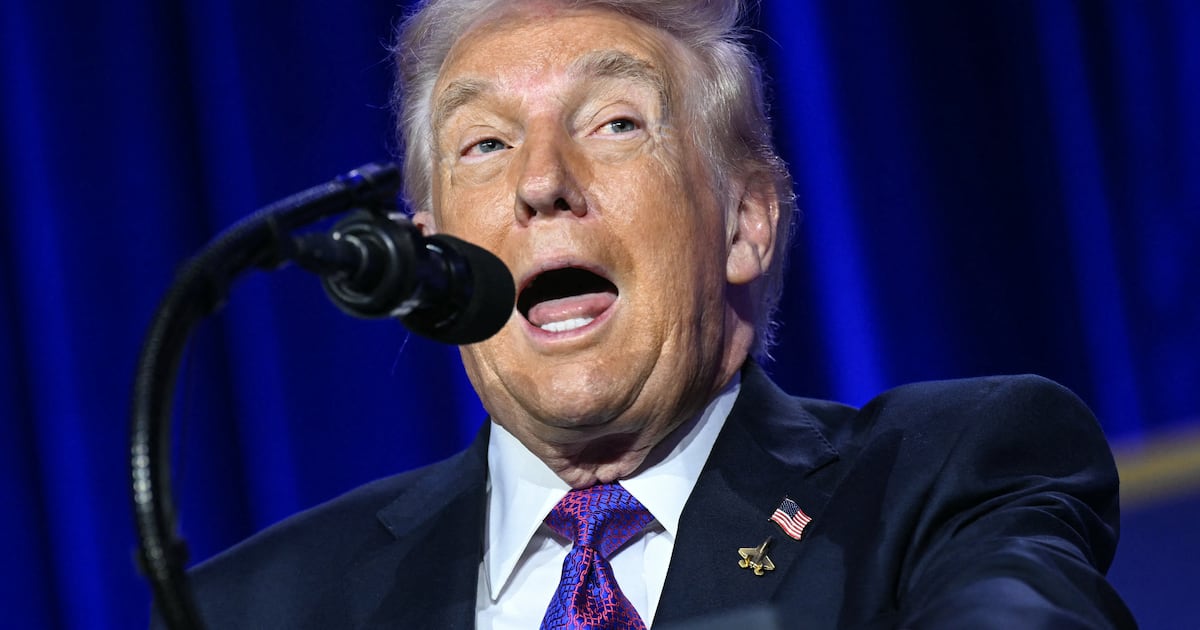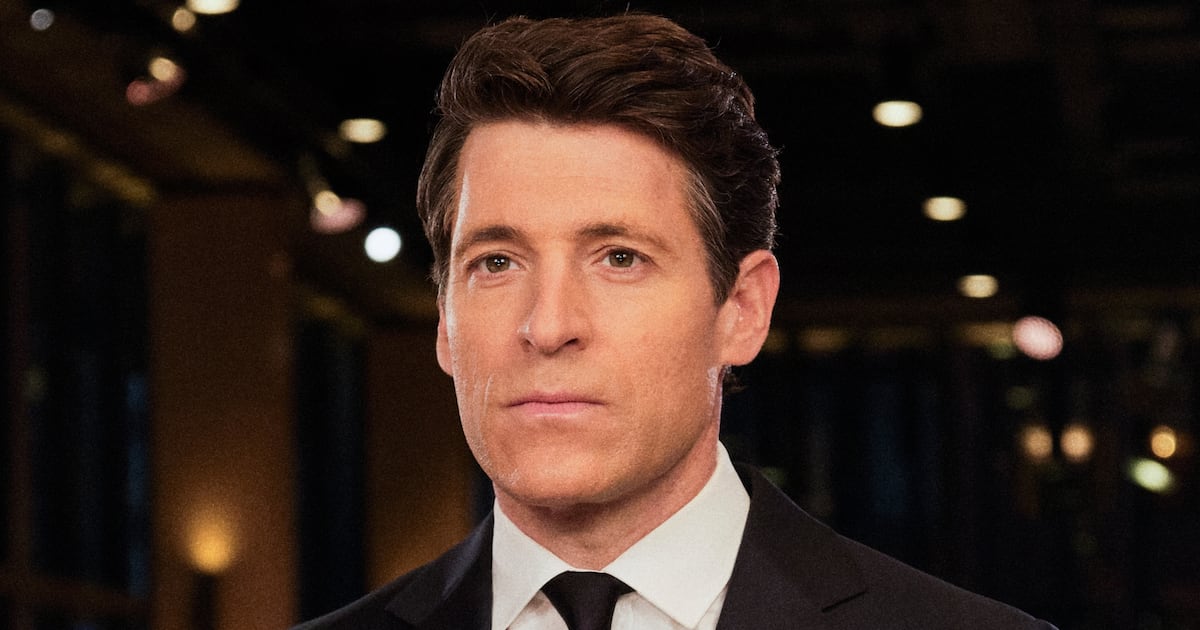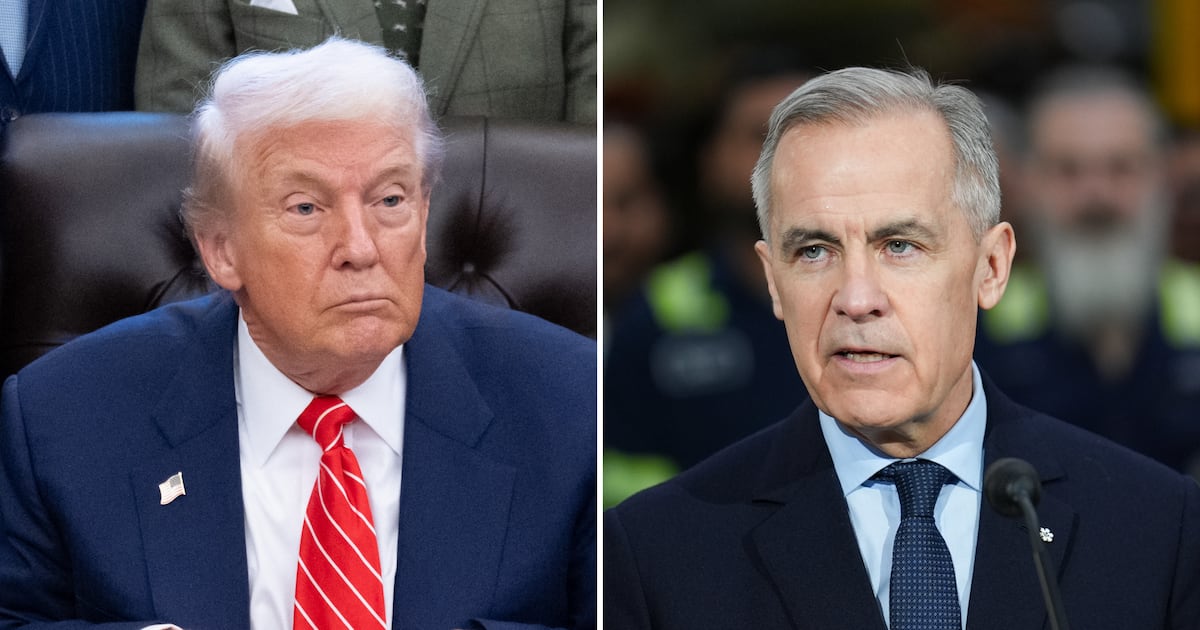U.S. President Donald Trump addresses the World Economic Forum in Davos on Friday amid concerns of a “trade war” between the world’s first- and second-largest economies.
At the moment, a U.S.-China spat is a concern, but there is an even bigger danger: the destruction of the global system of rules-based commerce.
The Chinese have prospered because they have, for decades, gotten away with being mercantilists in an increasingly globalist world, and even now they don’t think they have to change. Trump, however, is capable of bringing down that system, perhaps in short order, if he does not get what he wants.
Trump’s presence at Davos—the first by a sitting U.S. president since Bill Clinton in 2000—was always going to be an event. The current American leader, a demon in the eyes of “globalists,” is expected to throw, as Politico put it, a “gassy stink bomb” into the crowd of 3,000 or so.
Trump, the master of creating appearances, upped the stakes before leaving for the Swiss lair of Klaus Schwab’s World Economic Forum. First, he had an acrimonious telephone call on trade deficits with his Chinese counterpart, Xi Jinping, on January 15. Four days later, U.S. Trade Representative Robert Lighthizer issued a report implicitly questioning the value of the World Trade Organization, the 164-nation body setting trade rules. On Monday, the administration announced “safeguard” tariffs on solar panels, a move targeting China, and on washing machines.
The tariffs, not significant by themselves, are nonetheless thought to be the first shots in a trade war. “There’s a real chance that this opens the floodgates,” Chad Bown of the Peterson Institute for International Economics told The Washington Post.
Bown was right, because in this case context matters. And as Charles Ortel of the “Sunday with Charles” podcast points out, the context is the loss since the late 1980s to China of “millions of American jobs and hundreds of billions in purchasing power.”
President Barack Obama’s proposed solution was to push labor, environmental, and other standards into his signature Trans-Pacific Partnership, which would have created a 12-nation free-trade area that did not include China. Trump, by executive order, withdrew from TPP on his first day in office.
And the president since then has adopted a generally antagonistic posture toward trade agreements. He has, most notably, threatened to withdraw from Korus, the free-trade pact with South Korea, and NAFTA, the agreement with Canada and Mexico.
So what’s next? Think vigorous trade enforcement. “The global trading system is threatened by major economies who do not intend to open their markets to trade and participate fairly,” Lighthizer, the U.S. trade representative, correctly pointed out as he released his report this month. “This practice is incompatible with the market-based approach expressly envisioned by WTO members and contrary to the fundamental principles of the WTO.”
The planet’s number one trade criminal is, of course, Beijing. After stating that Washington made a mistake supporting China’s accession to the WTO in 2001, Lighthizer’s report (PDF) declared, “WTO rules are not sufficient to constrain China’s market-distorting behavior.”
Despite high expectations at the beginning of the last decade, China’s trade behavior has deteriorated, not improved, across the board. Unfortunately, Xi Jinping thinks he does not need the rest of the world and, more important, he believes the world needs China.
In response to Chinese trade predation, the U.S. is no longer pursuing Davos-favored solutions, like trying to integrate China into the global trading system. Hence the emphasis on enforcement.
Trump’s administration is considering various measures, especially Lighthizer’s “Section 301” investigation into China’s persistent theft of American intellectual property. There is also an investigation, pursuant to Section 232 of the Trade Expansion Act of 1962, into Chinese steel and aluminum.
If these and other trade actions do not work—and it’s hard to find anyone who is optimistic that they will fundamentally change Beijing’s outlook in the Xi era—look for the administration to eventually back solutions now considered extreme.
“The WTO has masqueraded as a legal and judicial organization since its founding,” Alan Tonelson, a prominent Washington, D.C.-based analyst blogging at RealityChek, told The Daily Beast. “It’s entirely political, and because most of its key members rely so heavily on growing by amassing trade surpluses with the United States, the WTO’s politics are stacked heavily against America.”
Tonelson and others have a simple solution: “Withdraw from the WTO and employ the nation’s matchless leverage to secure equitable terms of trade with the world’s major economies.”
There is, at the same time, a perception that more than just trade is at stake. “Imagine what would have happened in the Cold War if we had strengthened the Soviet system with trade,” Arthur Waldron, the famed University of Pennsylvania historian, told me this week. “It would have been a disaster for us.”
And Waldron is on the mark. Henry Kissinger in On China, his 2011 book, recounts a conversation between Deng Xiaoping, Mao Zedong’s wily successor, and Zbigniew Brzezinski, President Jimmy Carter’s national security adviser. Trade with the Soviet Union, Deng told the American, means “the U.S. is helping the Soviet Union overcome its weaknesses.”
“The latest technology and lots of money: ‘The sinews of war’ historians call them,” Waldron notes. “We have showered all on China. This policy has not led to the peace imagined. Rather it has dangerously enabled China to reach the forefront of military strength—with a huge leg up from us. This must stop lest we equip and pay for wars aimed at ourselves and our allies.”
Trump may already agree with Waldron. The administration’s National Security Strategy, unveiled in December, and the National Defense Strategy, a summary of which was released Friday, characterize China as an adversary, a “central challenge” as the latter document put it.
Trump in Davos may not roar about a “global power structure” that is impoverishing Americans, as he did on the campaign trail last year, but that is precisely what he is thinking. In any event, he will in the Swiss Alps signal a fundamental change in American policy.
As David Gergen, in Davos, said, Trump’s message “will not go over well here,” but that’s a good thing. Globalist thinking has allowed China and other trade predators to harm America, and that, in any American administration, is unsustainable.
By allowing Chinese mercantilism to go unchallenged for decades, the Davos crowd has delegitimized the concept of free trade, as the positions of candidates Trump, Hillary Clinton, and Bernie Sanders last year showed.
So Trump, in one sense, is free trade’s best last hope. After all, the alternative to enforcement is revolution. And in a revolution, the WTO might just have one fewer member.






